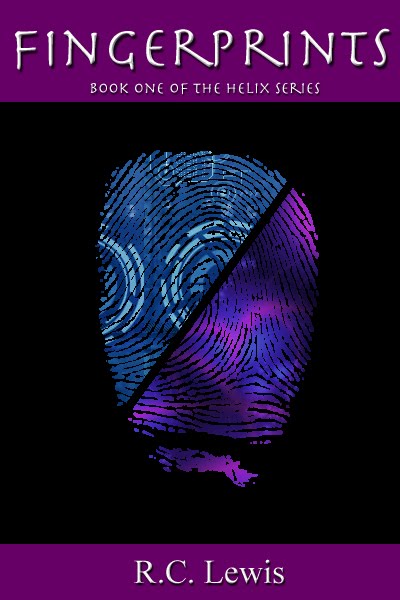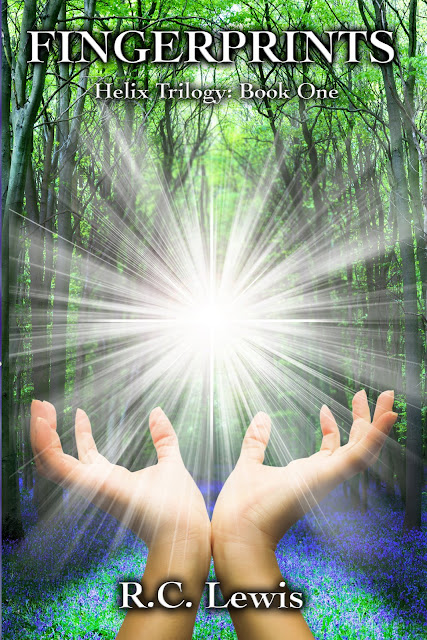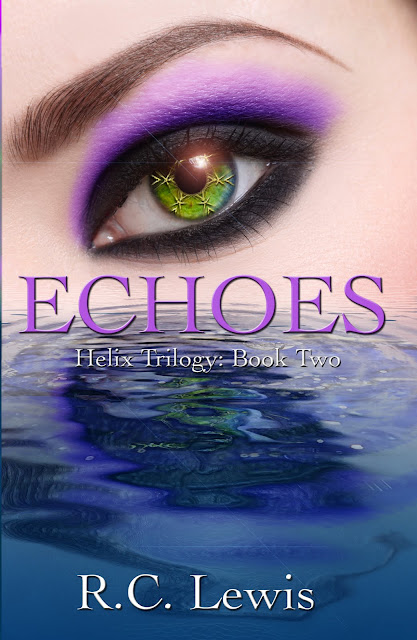writing
Playing with Covers
My siblings are graphically gifted, so when I needed a cover image for Authonomy, I turned to my sister. After I finished the sequel, she decided to go a different direction for Fingerprints to mesh better with her take on Echoes. We still have some thoughts about tweaking things. Enjoy.
 |
| Original Fingerprints Cover |
 |
| New Fingerprints Cover |
 |
| Echoes Cover |
Speak up:
2 commentsThe Query Quandary
Mention queries, and writers of all ages sprout a few more gray hairs. The first rule of #AskAgent chats on Twitter is No Query Questions. I haven’t yet come across a writer who looks forward to writing one or an agent who adores slogging through hundreds of them to find a few gems. (If you’re out there, give a shout.) [EDIT: Cat likes writing them, just not sending them. So there’s at least one out there.]
No one (or almost) really likes them, but I get why they fall under the “necessary evil” category. And it’s not like there aren’t resources out there to help – enough blogs to overload anyone’s browser, for starters.
Even with all that help, we struggle. After doing my best to help critique several queries on AgentQuery Connect and overhauling my own query for the umpteenth time, I thought about what makes it so difficult. Boiling a novel-length plot down to a couple hundred words isn’t easy, obviously. But what – above all else – stands in the way?
They say the devil’s in the details. I contend that the devil’s in determining the depth of the details. (How’s that for alliteration?)
Boil down the plot too much, and you get something like this:
An orphan boy discovers he has unexpected power and is the Chosen One who must battle ultimate Evil.
Could be Harry Potter. Or Star Wars. Or possibly dozens of other fantasy works.
More often, though, I think we tend to go to the opposite extreme, thinking every nuance of the story is essential if the agent or editor is to understand the plot. Try this (exaggerated) example:
Milton Dauntless, a shy thirteen-year-old boy with a faithful Chihuahua-Corgi mix named Gargantuar, discovers his parents, Darwina and Ted, weren’t killed in the famous So-So Steakhouse food poisoning scandal of ’99 as he’d been told all his life by Grandma Gertie. In fact, his father was killed by the evil vampire lord Vladindeath, who has secretly ruled the underworld ever since defeating the werewolf clans seven hundred fifty-two years ago. As the sole survivor of the powerful Dauntless clan, Milton must now learn to harness the power of the Crystal of Purity, find out what happened to his mother when she escaped the bloodbath of her husband’s murder with her long-lost brother Sherman, and defeat the vampires once and for all.
(Okay, that was kind of fun.)
That one is obviously bogged down in excess detail, including irrelevant backstory and too many names. (See my earlier musing on the issue of Name Soup.)
Here are some of my conclusions, and I hope others will add to them.
Get Enough Detail
- The whole point of the query is to show an agent or editor what makes your story stand out from the others. Part of this can be through voice. But these days, if you’re writing about vampires or angels, for example, you’ve got to show your unique twist.
- Make it memorable and leave them wanting more. Again, the point of the query: get a request for more material.
- Include details that are snappy, quirky, or unexpected … without belaboring the point.
Don’t Overdo the Detail
- R.C.’s Personal Rule of Thumb: Anyone who won’t be mentioned by name again in the query shouldn’t be named at all.
- Avoid backstory. Plenty of time (and more creative ways) to incorporate it into the manuscript itself.
- Axe details that can leave the reader saying, “Why should I care about that?” For example, knowing all of that about Milton’s dog doesn’t really tell us anything substantial about the character (except maybe that he has a silly sense of humor when it comes to naming pets) or the plot.
It’s a thin line to walk between too much and too little. No wonder so many of us find it so difficult.
Do you have any pointers for finding that perfect balance?
~R.C.
Speak up:
11 commentsUpdate: School’s Out!
The end of the school year was a little crazy. I guess that’s what happens when you agree to help some deaf kids edit the music for the graduation video and you have to pack up your entire classroom because the front half of the building is being renovated next year. Oh, yeah, and finals … I can’t forget finals.
That’s all in the past now. Summer’s here, and I can focus almost exclusively on writing. (YES!) Fingerprints is looking better than ever after I finally rewrote the longstanding opening. Still waiting on agents. Echoes (the sequel) has been through some solid rounds of editing and feels a lot better than it did when I drafted it. The third book in the series is underway and getting some momentum now that I can spend more than an hour at a time on it.
To keep busy, I wrote another short story and submitted it to the Science in My Fiction contest. Results due July 21st. Submitting the earlier story to some other places. A friend pointed out another contest I might consider, if I can write a story under 2500 words in the next month.
All this happens when I’m not getting sunburned helping my parents work in their backyard.
If I need a break from writing, I’ll spend some time brainstorming ways to get revenge on the student who dropped a water balloon on me at Field Day. Cue the supervillain laughter.
Speak up:
Comments Off on Update: School’s Out!What (Teen) Readers Want
Since my writing efforts are focused in the Young Adult area, I’m lucky to have ready access to my target audience. In fact, I think I spend more hours conversing with teens than adults. Some will read anything you put in front of them. Others will tell you over and over how much they hate reading, but once in a while a book engrosses them to the “can’t-put-it-down-even-for-my-favorite-class” level.
I’ve had a few conversations with my students lately about books we’d all read, and what they did or didn’t like about them. After that, I asked them to describe what makes a book “good.” Some interesting responses so far, and I’ll add more as I collect them.
From a sophomore girl:
DETAILS! [And after further prompting…] Of characters and settings.
I love that she wants details from authors, but is reluctant to give many herself.
From a junior girl:
I am tired of the dumb chick, the unexplained dude. I think it should cover all types – romance, action, funny, and scary – in some way. I also think it should always keep me guessing!
I had an entire lunchtime conversation with that girl about the “dumb chick” issue – or Stupid-Girl Syndrome. She could have gone on, and so could I, but I’ll refrain for now.
From another sophomore girl, an aspiring writer (can you tell?):
I don’t really know how to answer, but in my opinion, a good book must have a conflict, complex characters, and a well organized plot. Characters can’t not have a personality; readers have to be drawn in by their personalities, good or bad. A well organized plot is necessary – you don’t want to confuse people. If you don’t have a conflict, it will be a never-ending story, droning on and on. The idea has to be original, too – who wants to read a story that has already been told before?
I’ll be sure to tell her Composition teacher she’s been paying attention in class. *grin*
More to come, especially some guy perspectives. Anyone else out there have info on what teens are looking for in a good read?
Speak up:
4 commentsQuick Update
I’ve been meaning to post for a while, but real life + writing has gotten in the way. (That’s a good thing, right?) Here’s the latest:
- Fingerprints didn’t make the semifinal round of ABNA. That’s all right, though. I’ll have a post discussing my Publishers Weekly review soon.
- The first five pages (with the option to read a little more) are available for rating on WEbook’s PageToFame contest. More for fun and curiosity than anything else. Rating other people’s work is fun, too.
- “Assumptions” is being rated on WEbook’s PageToFame Shorts contest. Totally just for fun.
- I “finished” the sequel to Fingerprints, tentatively titled Echoes. It’s been through a few rounds of editing and beta reads, and little sis is working on a cover design (in case I end up going the self-pub route with this whole thing).
- The third book in the series (as yet untitled) is underway.
- An agent still has the Fingerprints full.
- Still working on short story submissions.
- Several queries out in the ether.
- Oh, yeah … final exams and graduation are coming up.
Sounds busy enough to me.
Speak up:
Comments Off on Quick UpdateSchool Talk: Jess M. Brallier
Students at my school (K-12) had a great experience today, hearing from Jess M. Brallier (author of Tess’s Tree and involved in the publishing of Diary of a Wimpy Kid, among many other things). This was the culmination of our first Author Illustrator Competition, where kids school-wide wrote, illustrated, edited, designed, and produced books.
Very interesting to hear from “someone on the inside” here in our little school. I loved the beginning, when he introduced the concepts of publisher, author, and reader – especially since our students are deaf and very visually inclined. As publisher, he wore a smart blazer and coordinating hat, very sophisticated. As author, he wore a scary-loud plaid jacket with a fur-lined cap. As reader, he was a regular guy wearing a baseball cap.
After setting up two volunteer students as the author and reader (on opposite sides of the stage), he explained a publisher’s role as getting the author’s work to the reader. He did a great job explaining how this could involve getting it physically from the author’s cabin in Wyoming to a bookstore in New York, or getting it translated into Chinese, or getting it published online.
The best part was knowing how huge this was for at least a couple students who I know want to become writers. Thanks to this, they know more about the process than I did at their age. I think all the students gained some insight into where books come from and how much goes into it.
Interesting note: The student who asked the most (and some of the best) questions was a self-confessed non-reader. I wonder if she was just curious because she knows I’m in the process of trying to get published. 😉
Anyone else have interesting experiences with school talks by authors (either giving or seeing one)? This was more the publishing perspective, but what other information about writing do you think would benefit students?